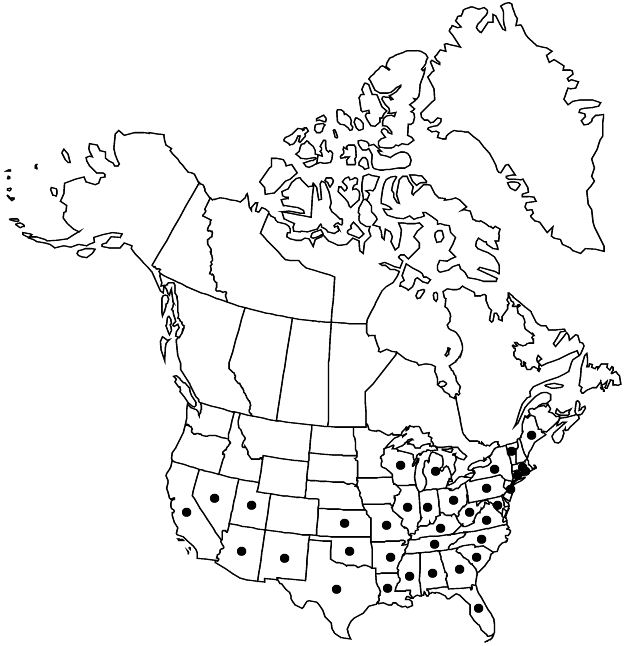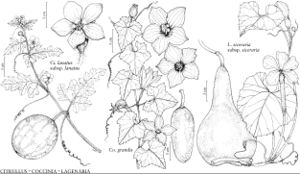Difference between revisions of "Citrullus lanatus subsp. lanatus"
FNA>Volume Importer |
FNA>Volume Importer |
(No difference)
| |
Revision as of 22:46, 16 December 2019
Vines annual. Stems climbing or trailing, 50–200 cm, villous; roots fibrous; tendrils 2–3-branched. Leaf blades ovate to lanceolate-ovate or ovate-triangular, mostly 8–20 cm, 3–5-lobed, lobes pinnately shallowly sinuate-lobulate, margins denticulate, surfaces hirsute abaxially, hispid on veins and veinlets, glabrous or scabrous adaxially with translucent dots. Flowers: hypanthium broadly campanulate; sepals lanceolate, 3–5 mm; petals obovate-oblong to widely oblanceolate, 7–16 mm. Pepos green, mottled with paler green and yellowish to whitish stripes, globose to oblong-ellipsoid, 12–35+ cm diam.; rind tough, not durable, mesocarp red to orange, yellow, or greenish, juicy, sweet. Seeds usually black, rarely red or of different shades, ovoid to oblong-ovoid, 7–15 mm. 2n = 22.
Phenology: Flowering Jun–Nov.
Habitat: Gardens, fields, vacant lots, trash heaps, dumps, roadsides, clearings in woods, gravel bars, stream banks, riparian thickets, dunes, volunteering from past plantings
Elevation: 10–400 m
Distribution

Ala., Ariz., Ark., Calif., Conn., Fla., Ga., Ill., Ind., Kans., Ky., La., Maine, Md., Mass., Mich., Miss., Mo., Nev., N.J., N.Mex., N.Y., N.C., Ohio, Okla., Pa., R.I., S.C., Tenn., Tex., Utah, Vt., Va., W.Va., Wis., Asia, Africa, introduced also in Mexico, West Indies, Central America, South America, Europe, Australia.
Discussion
Selected References
None.
